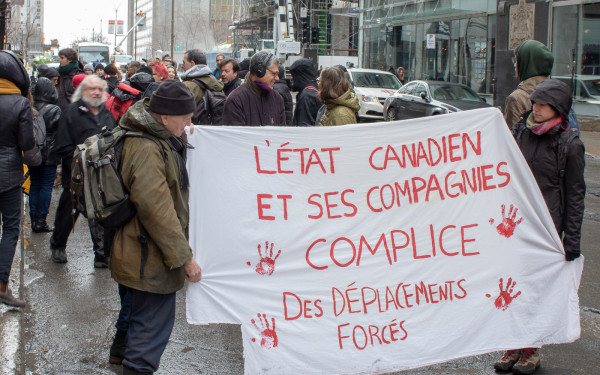Montreal’s Women’s March to Fight Against Gendered Violence
This Year’s March Focuses on Abuse Towards Women and Girls
On the third annual Women’s march, about 100 people gathered at the Gamelin Square by Berri-UQAM metro in -22 C weather to show their support for women and girls who have suffered abuse in their lifetime.
“This was all put together in two weeks with no funds, so I dare you to say that bringing people together is impossible,” said Georgette Pascual, one of the organizers of this year’s march.
The first Women’s March was held in 2017 in Washington D.C., with marches held around the globe to protest the inauguration of United States President Donald Trump. The second march in 2018 was a collective for the #MeToo movement. This year honed on the fight to end violence against women.
“This year, we wanted to use this platform to create some noise about the existence and treatment of domestic and systemic violence in Quebec,” said Sarah Barone, another organizers of the march.
Pascual told the crowd to raise their hand if they’ve ever been victims of abuse, whether it’s verbal, physical, emotional, virtual, financial, cultural, or systemic abuse. “Look around you, these hands are one too many,” Pascual said.
Groups like the Native Women’s Shelter of Montreal, Ni Una Menos–an Argentinian feminist movement–Global Climate Justice Montreal and the Fédération des femmes du Québec, who provided sign language interpretation, were able to make the march a reality.
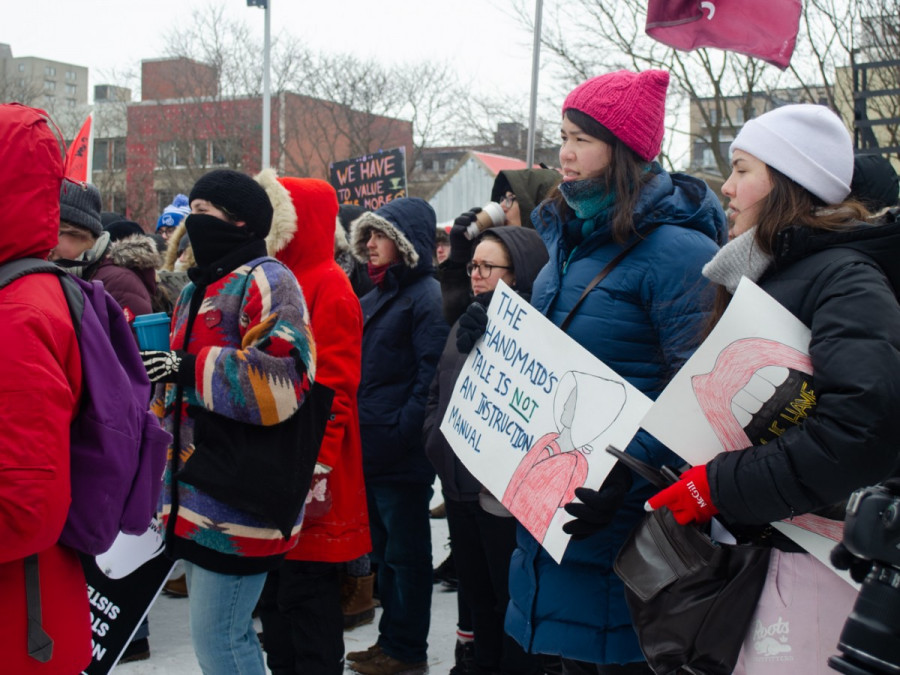
“Our speakers will be making a parallel to raise awareness about violence relating to the erasure of women in Quebec with missing and murdered Indigenous women, girls, and two-spirit people, women in Latin America, the mistreatment of trans women, sex workers, youth, and our Mother Earth,” said Barone.
The rally began with a written letter to Prime Minister Justin Trudeau about the urgency that is the pipeline protest coming from the Wet’suwet’en. The letter was written by Marlene Hale, part of the Wet’suwet’en Nation.
“The Wet’suwet’en have demonstrated at the Supreme Court over and over again that the hereditary chiefs are the decision makers on our lands,” wrote the letter. “This is not reconciliation, and it is certainly not respect. How do you intend to correct this trajectory in real time and action that will respect my people and Indigenous rights?”
Speaker Jen Gobby from Climate Justice Montreal created a connection between climate change and women’s health. “Climate change and women’s struggles are related in support important ways women around the world are hit hardest by drought, floods, storms and other climate impacts,” she said.
Gobby explained that the Canadian government is one of the biggest drivers of climate change through the cultivation of fossil fuels. She retaliated by saying that Indigenous women have been leading the fight against the pipeline industry and extractivism here.
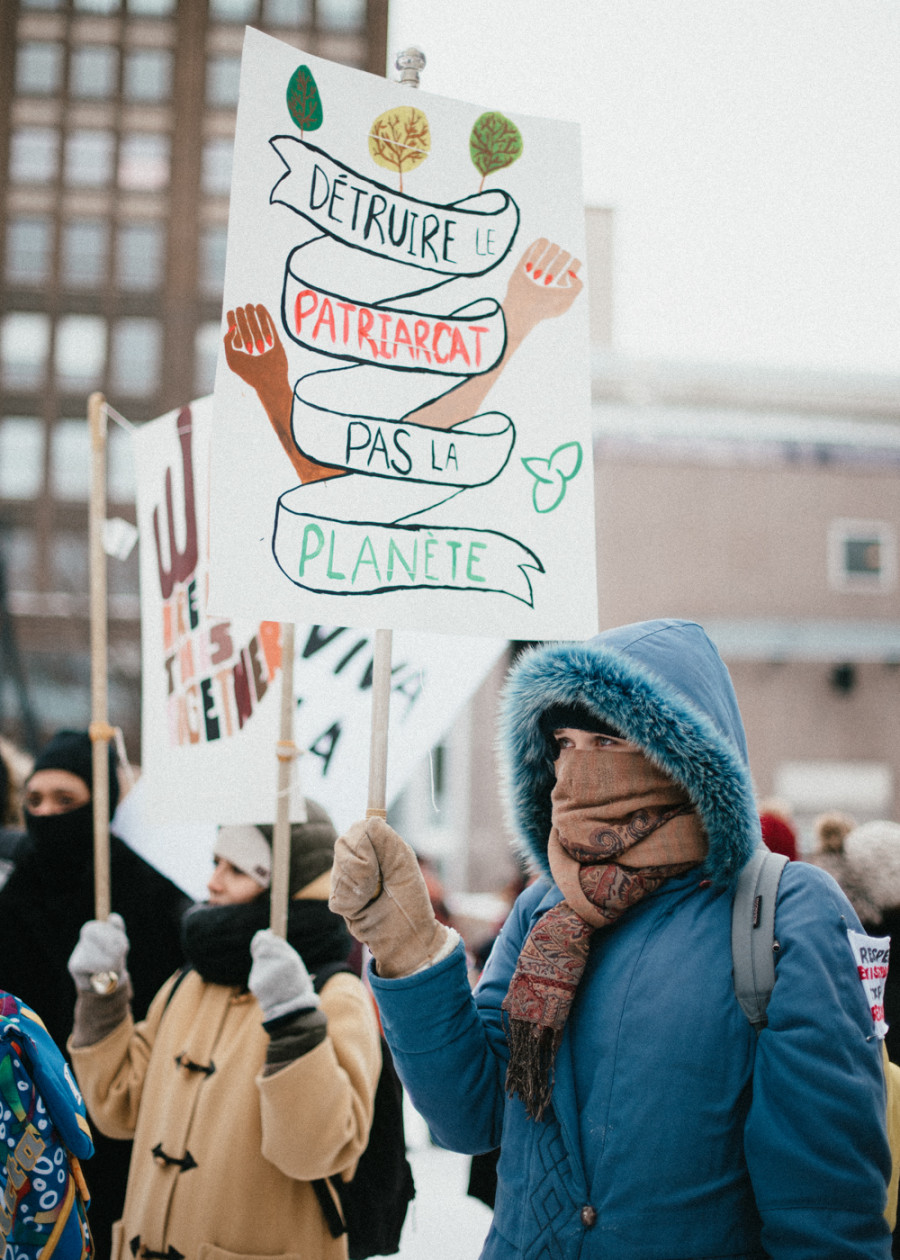
“Violence against land is violence against women and gender justice is climate justice,” Gobby said.
Supporters of missing and murdered Indigenous women’s also held up signs to represent the stolen sisters of Canada. Jessica Quijano form the Native Women’s shelter of Montreal works on the Iskweu project aimed to address the rising number of missing and murdered Indigenous women and girls.
Quijano’s job is to follow up with police to make sure they investigate a case where an Indigenous women or girl went missing, or was murdered.
“Isn’t it messed up that an organization like the Native Women’s Shelter had to hire a coordinator?” Quijano said in response to the fact that her job is to hold police accountable for investigating missing and murdered Indigenous women and girl cases.
“In the past month, sadly we’ve lost four women,” Quijano said. “What ends up happening is that they do not get services when they need.”
“I’ve never worked with a community that has so many women dying at such an alarming rate,” she continued.
Quijano called for people to be more inclusive towards Indigenous people, and to be aware of what is happening with the Indigenous crisis in Canada. “I’m asking you today, for you to think about whether or not you know any […] Indigenous women and if you are not seeing those people in your lives, then what are you doing to have them more included?” she asked.
Hale finished her letter by calling out Trudeau for his lack of effort for reconciliation with Indigenous people.
“This is not reconciliation and it is certainly not respect. How do you intend to correct this trajectory in real time and action that will respect my people and Indigenous rights?”
The rally ended with the actual march, which started towards St. Catherine St. and circled back to the Gamelin Square.

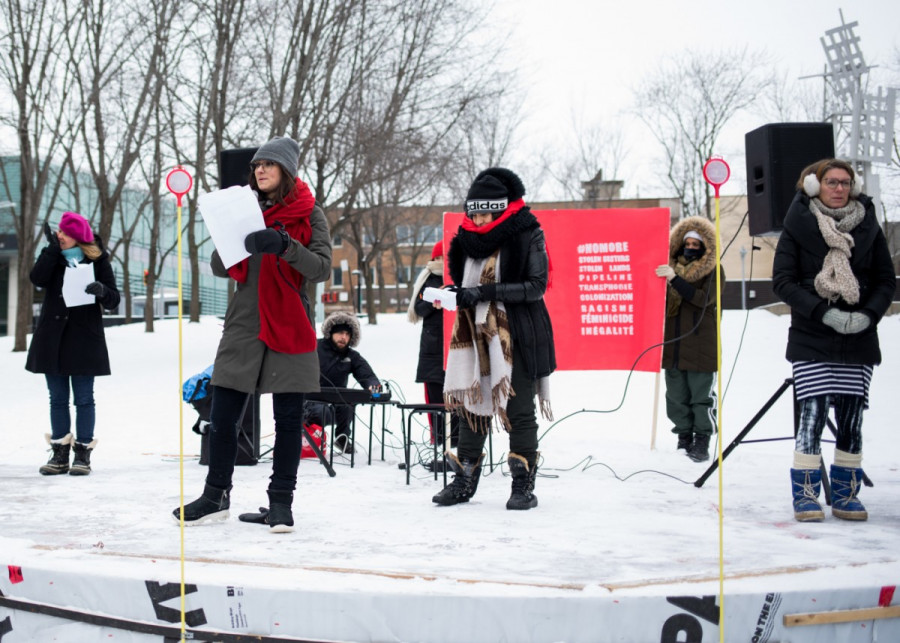


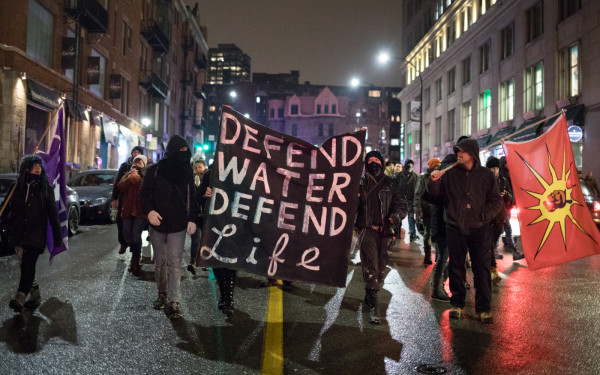
_600_375_90_s_c1.JPG)

